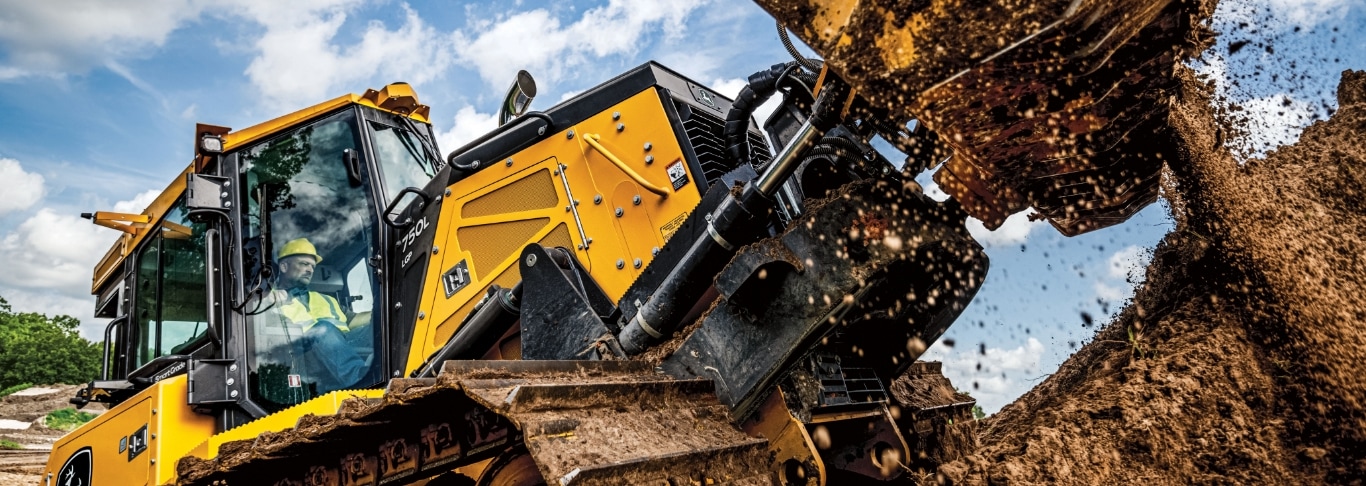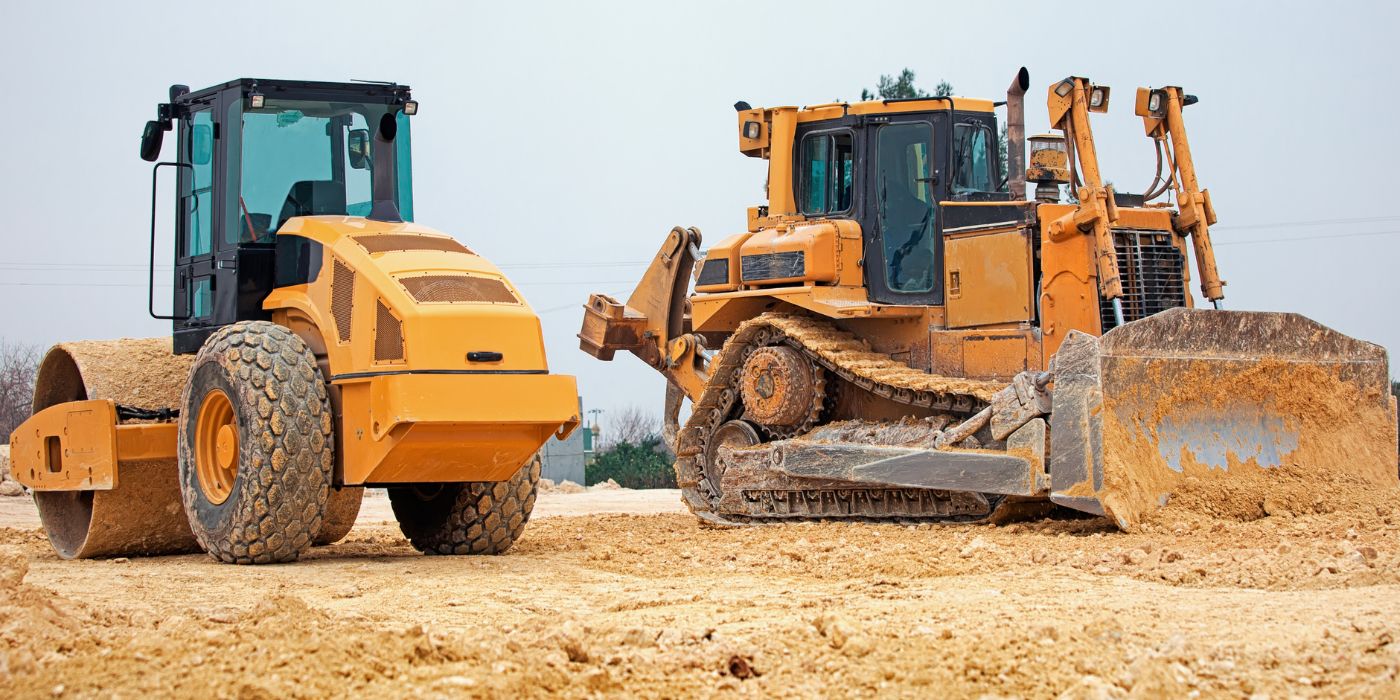Dozer Rental in Tuscaloosa, AL: Dependable and Economical Heavy Machinery
Wiki Article
Exploring the Financial Perks of Renting Construction Tools Contrasted to Owning It Long-Term
The choice between having and leasing building and construction equipment is pivotal for monetary monitoring in the sector. Renting out deals prompt price savings and operational adaptability, allowing business to allocate sources more efficiently. On the other hand, possession features significant long-term economic dedications, consisting of upkeep and depreciation. As contractors weigh these alternatives, the effect on capital, task timelines, and modern technology gain access to comes to be progressively significant. Recognizing these subtleties is vital, especially when taking into consideration exactly how they straighten with particular project requirements and economic techniques. What aspects should be focused on to ensure optimum decision-making in this complicated landscape?
Expense Comparison: Renting Vs. Having
When assessing the economic implications of having versus renting building devices, a complete expense contrast is vital for making notified decisions. The selection in between renting out and possessing can significantly impact a firm's profits, and understanding the connected costs is crucial.Renting out building and construction devices normally involves lower in advance expenses, permitting organizations to assign capital to other functional demands. Rental prices can collect over time, potentially surpassing the expenditure of ownership if equipment is required for a prolonged period.
Alternatively, possessing building and construction tools needs a substantial initial financial investment, together with ongoing costs such as insurance policy, financing, and depreciation. While ownership can cause long-term financial savings, it additionally locks up funding and may not give the same level of flexibility as renting. Furthermore, possessing equipment requires a dedication to its application, which may not always align with job needs.
Ultimately, the decision to have or lease must be based on a thorough analysis of specific project demands, economic capability, and long-lasting critical goals.

Upkeep Duties and expenditures
The selection between possessing and renting out building and construction devices not only involves economic considerations but likewise encompasses recurring upkeep expenses and duties. Having devices requires a considerable commitment to its upkeep, which consists of regular evaluations, repair work, and prospective upgrades. These obligations can swiftly gather, bring about unforeseen prices that can stress a spending plan.On the other hand, when renting devices, upkeep is generally the responsibility of the rental firm. This plan enables specialists to prevent the financial worry connected with damage, as well as the logistical difficulties of scheduling repair work. Rental arrangements frequently include provisions for maintenance, meaning that specialists can concentrate on finishing tasks as opposed to stressing over devices problem.
In addition, the diverse series of devices available for lease enables business to choose the most recent versions with sophisticated technology, which can boost effectiveness and performance - scissor lift rental in Tuscaloosa, AL. By going with rentals, companies can prevent the lasting responsibility of tools depreciation and the connected upkeep migraines. Inevitably, examining maintenance expenses and duties is crucial for making a notified choice about whether to rent out or own building and construction devices, dramatically influencing overall task prices and operational efficiency

Devaluation Influence On Ownership
A substantial factor to take into consideration in the decision to possess building tools is the effect of devaluation on total ownership expenses. Devaluation represents the decrease in worth of the equipment gradually, affected by aspects such as use, wear and tear, and advancements in technology. As equipment ages, its market value decreases, which can considerably influence the owner's monetary position when it comes time to sell or trade the devices.
For building business, this devaluation can convert to significant losses if the devices is not used to its fullest capacity or if it becomes out-of-date. Proprietors must account for devaluation in their economic forecasts, which can lead to higher overall costs contrasted to renting out. Additionally, the tax obligation ramifications of depreciation can be intricate; while it might provide some tax obligation advantages, these are usually countered by the truth of reduced resale value.
Ultimately, the burden of depreciation highlights the value of recognizing the long-term monetary dedication associated with having construction devices. Companies must very carefully review just how commonly they will utilize the equipment and the possible economic influence of depreciation to make an educated decision about possession versus renting.
Monetary Flexibility of Renting Out
Leasing building devices supplies considerable monetary flexibility, published here allowing companies to allot resources extra efficiently. This versatility is specifically crucial in an industry characterized by varying project needs and varying workloads. By opting to rent out, organizations can avoid the significant capital outlay needed for purchasing devices, protecting money click for more info circulation for other functional requirements.In addition, leasing devices allows business to tailor their devices options small construction equipment for sale near me to particular job requirements without the long-term commitment connected with possession. This suggests that organizations can conveniently scale their tools stock up or down based upon present and expected job requirements. As a result, this adaptability lowers the risk of over-investment in equipment that may become underutilized or obsolete in time.
One more financial benefit of renting out is the possibility for tax obligation advantages. Rental repayments are typically taken into consideration general expenses, allowing for immediate tax reductions, unlike depreciation on owned and operated equipment, which is topped a number of years. scissor lift rental in Tuscaloosa, AL. This immediate expense acknowledgment can better enhance a business's cash money placement
Long-Term Project Factors To Consider
When evaluating the long-term demands of a building company, the decision between owning and renting equipment ends up being more intricate. For jobs with extensive timelines, purchasing equipment might appear helpful due to the potential for lower overall expenses.The construction sector is evolving quickly, with new equipment offering boosted effectiveness and safety features. This flexibility is specifically valuable for services that handle varied jobs requiring various types of tools.
Additionally, financial security plays an important role. Possessing tools commonly entails substantial capital financial investment and depreciation problems, while renting out permits even more foreseeable budgeting and cash circulation. Inevitably, the selection in between owning and leasing should be aligned with the strategic objectives of the building service, taking right into account both anticipated and present project demands.
Verdict
In verdict, renting out building devices supplies substantial economic advantages over lasting ownership. Eventually, the decision to rent out rather than own aligns with the dynamic nature of building and construction jobs, enabling for flexibility and access to the most current equipment without the economic concerns linked with ownership.As tools ages, its market worth decreases, which can considerably affect the proprietor's economic placement when it comes time to offer or trade the tools.
Leasing building devices supplies significant economic versatility, allowing companies to designate sources extra effectively.In addition, renting out equipment makes it possible for companies to tailor their tools choices to details task requirements without the lasting commitment associated with ownership.In conclusion, renting out construction tools provides significant monetary advantages over long-lasting possession. Eventually, the choice to rent rather than own aligns with the vibrant nature of building and construction tasks, enabling for adaptability and access to the most current equipment without the monetary burdens associated with possession.
Report this wiki page